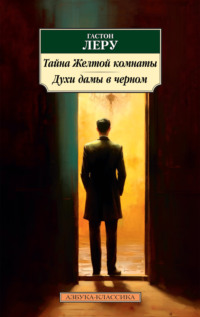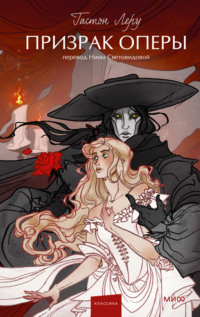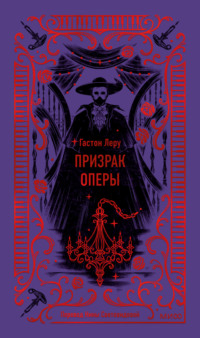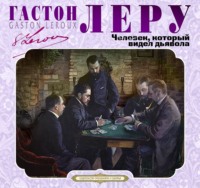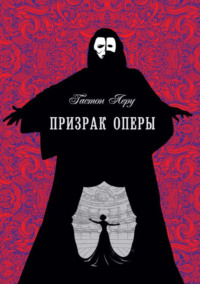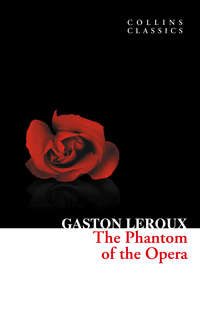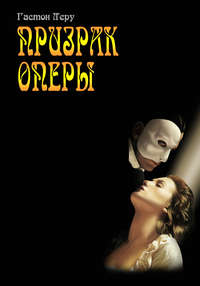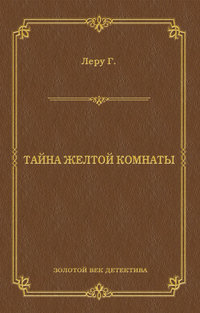 полная версия
полная версияThe Man with the Black Feather
Theophrastus raised the evening paper again, adjusted his gold-rimmed spectacles on his nose, and went on:
"The most incredible thing in this extraordinary story is that several times during the last week the police have been on the very point of catching the modern Cartouche, and that he has always escaped by the chimney, just like the other. History teaches us that that was the practice of the real Cartouche. On the 11th of June, 1721, he had formed the plan of robbing Desmarets House, Petits-Augustins Street. It was one of his men, the Ratlet, who had suggested the coup to him. But the Police had their eye on Cartouche and the Ratlet; and no sooner were they in Desmarets House than the archers rushed to the spot, and the house was surrounded. Cartouche had the doors of the rooms quietly locked and the lights put out. He undressed himself, climbed up the chimney, descended by another chimney into the kitchen, where he found a scullion. He killed the scullion, dressed himself in his clothes, and walked out of the house, shooting down with his pistols two archers, who asked him where Cartouche was. Well, what will you say when we tell you that yesterday our Cartouche, having been tracked to a confectioner's in the Augustins Quarter, escaped by the chimney, after having put on over his own clothes, which doubtless he desired to keep clean, the over-alls of the confectioner, which were found on the roof? As for the confectioner he was found, half cooked, in his own oven. But before putting him into it, Cartouche had taken the precaution of previously assassinating him."
Here Theophrastus once more broke off his reading.
"Previously!" he cried. "Previously! These journalists are marvellous!… I had previously assassinated him!… But why have you gone into the corner? Am I frightening you? Come, come, my dear Marceline; come, Adolphe: a little coolness. You'll want it for the story of the calf!"
"Never," says Theophrastus in his memoirs, which from this epoch become deeply tinged with a vast melancholy, "never before had either my wife or M. Lecamus worn such expressions at the reading of a mere newspaper article. But if we let ourselves be frightened by everything the newspapers tell us, we should be for ever on the rack. The journalists describe the events of the day with a particularly surprising power of imagination in the matter of crime. They must have their daily blood. It is indeed laughable. A knife-thrust more or less costs them nothing; and they only make me shrug my shoulders. The knife-thrusts of these gentlemen do not trouble my digestion in the slightest; and, I repeat, I shrug my shoulders at them.
"When I came to the place in the article at which Cartouche put the baker's man in the oven, my wife groaned as heavily as if that baker's man had been her brother; and leaving her chair, she shrank back little by little into the left-hand corner of the dining-room, nearest the hall. M. Lecamus was in a position quite as ridiculous. He had retired to the right-hand corner of the dining-room, nearest the hall. They were staring at me as if they were staring at a phenomenon at a fair, an eater of live rabbits, or something of that kind. I was displeased; I did not conceal from them my opinion that such childish behaviour was unworthy of two reasonable beings; and with some severity I begged them to return to their places by my side. But they did not do so. Then I started on the story of 'The Calf's Revenge.'
"I read:
"'M. Houdry is a butcher on the outer Boulevard. His specialty is veal; and people come from all parts of the district to purchase it. His renown is explained by a fact so exceptional that we should have refused to believe it, except for the repeated declarations of the Commissary of Police, M. Mifroid, who held the first inquiry into the circumstances of the crime. It is well known that the Paris butchers receive their meat from public slaughter-houses, and are forbidden to have slaughter-houses of their own. But every day M. Houdry killed a calf at home!'
"'That's quite right,' I said. 'M. Houdry explained it to me several times; and I was rather surprised at the confidence he showed in me when he told me about his mysterious slaughter-house. Why should he have revealed to me a fact which was known only to his wife, his assistant, a foundling whom he reckoned as one of the family, and to his brother-in-law who every night brought the calf? Why? There is no telling. Perhaps it was stronger than he! You know well that one never escapes one's destiny. I used to say to him: "Take care! It will end by the calves getting to know about it."'
"I went on with my reading:
"'This calf was brought to him in silence every night by his brother-in-law; and since the little back-yard in which his slaughter-house is situated looks out on some waste land behind, no one ever saw a live calf at M. Houdry's house. M. Houdry attached so much importance to killing his calves himself because his veal owed its excellence to his manner of killing it.'
"'As a matter of fact,' I broke off to say, 'he used to cut off their heads at a single blow, with a big cutlass.'
"'Early yesterday morning M. Houdry shut himself up as usual in his slaughter-house, with his calf. His assistant helped him tie up the calf. As a rule, M. Houdry took from twenty-five to thirty minutes preparing his veal for the stall. Thirty-five minutes passed; and the double doors of the slaughter-house did not open. Sometimes M. Houdry called his assistant to help him finish the work. That morning he did not call him. Forty minutes passed. Then Mme. Houdry, the butcher's wife, came to the back door and said to the assistant: "What's your master doing this morning? He's a long time over his work."
"'"Yes; much longer than usual," said the assistant.
"'Then she called, "Houdry! Houdry!" There was no answer; and she walked across the back-yard, and opened the doors of the slaughter-house. At once the calf ran out and began to dance gracefully round her. (Dear! dear! I begin to dread some great misfortune!) She looked at the calf with some surprise, for at that hour the calf should have been veal. Then she opened the door wider, and called to her husband. He did not answer; she turned towards his assistant and said:
"'"Your master isn't here. Are you sure he hasn't gone out?"
"'"Quite sure, Mum. I've been in the back-yard all the time. I expect he's hiding behind the door to jump out and give you a fright, Mum. You know what a joker the master is. But all the same, he'd much better be hiding the calf. If anybody sees it, he'll get into trouble."
"'So saying, he sprang at the head of the calf and slipped a halter over it.
"'"Houdry! Houdry!" cried his wife. "You're hiding to give me a fright! Don't be silly!"
"'There was no answer; and she went into the slaughter-house. Then she screamed; she had found M. Houdry. He was not hiding at all.
"'He was laid out, in neat joints of veal, on the table.'
"'I told him so,' said I. 'I told him so more than once. My presentiments always come true. I expected some great misfortune! And here it is! Every day, again and again, I told M. Houdry to look out: that one does not kill so many calves without the calves getting to know about it. But he always laughed at me. Yet the Theory of Chances always confronts us. It confronted him. He took no notice of it. He took no notice of anything: neither of the way the calf looked at him, nor of the Theory of Chances. But I said to him: "My dear M. Houdry, if a butcher can kill more than a thousand calves in Paris, when it is forbidden by the law, there will certainly be found one calf to kill the butcher!" And here you are! The calf has cut up the butcher! Well, well, it's nobody's fault… Let us continue this interesting article.'
"'Mme. Houdry screamed and fainted. The butcher boy also screamed and fainted—he was a foundling. A few minutes later the drama was discovered. One can imagine the emotion of the neighbourhood…' (There was reason for it. Poor M. Houdry: he was a fine fellow. And now they will have to try the calf. The calf will be a great success in the dock. It's a strange, fantastic, inexorable, and courageous calf!)
"The journalist was not of the opinion that the calf had cut up the butcher. And once more he dragged in the name of Cartouche. (Poor old Cartouche!) Once more I shrugged my shoulders. Then, raising my eyes above the top of the paper, I looked into the two corners of the drawing-room for those two foolish creatures who had so childishly retired to them—my wife and M. Lecamus. I looked in vain. They had disappeared. I called to them loudly. They did not answer. I hunted through the flat without finding them. Then I tried to open the door on to the landing; but it would not open. They had locked me in.
"That did not trouble me at all. When I am locked in, I go out by the chimneys, if they are big enough; if they are too small, I leave by the window. But my drawing-room chimney is a monumental chimney; there is not another like it in Gerando Street; and I climbed up it with the same ease with which I had climbed down the chimney of M. Houdry on the very morning on which the calf cut up that excellent but unfortunate man! I soon came out on to the roof into a very cold and rainy night which filled me with a profound sadness."
CHAPTER XX
THE STRANGE BEHAVIOUR OF AN EXPRESS TRAIN
That profound sadness was destined to affect seriously the future of Theophrastus. As he made his way over the roofs of Gerando Street, it increased to such a paralysing intensity that presently he sat down on the edge of a roof, with his legs dangling over the street, and plunged into the bitterest reflections. The result of this unwise action was that he caught a severe cold.
As he sat reflecting, he slowly came to himself, his modern self. During the reading of the article which narrated the crimes of the new Cartouche, he had displayed a carelessness airy to the point of callousness. Now the sense of his responsibility, especially in the matter of cutting up the butcher Houdry, weighed on him more and more heavily. The memory of many midnight outings, by way of the chimney he had just climbed, came into his mind; and several sanguinary crimes filled his blinking eyes with the too tardy tears of an ineffectual remorse.
So, in spite of all the suffering he had endured, in spite of all the passionate prayers of M. de la Nox to Æon, Source of Æons, Cartouche was not dead; the Black Feather ever sprouted afresh. This very night, as on so many other nights of crime, he was out on the roofs of Paris with his familiar spirit and his Black Feather. He wept. He cursed that mysterious and irresistible force which, from the depth of the centuries, bade him slay. He cursed the gesture which slays. He thought of his wife and his friend. He recalled with bitter regret the hours of happiness passed with those dear ones. He forgave them their terror and their flight. He resolved never again henceforth to trouble their peaceful hours with his red vagaries.
"Let us vanish!" said he. "Let us hide our shame and our original obliquity in the heart of the desert! They will forget me!… I shall forget myself! Let us profit by these moments of reason in which my brain, for the while free from the Past, discusses, weighs, deduces, and forms conclusions in the Present. It is no longer Cartouche who speaks. To-night it is Theophrastus who wills! Theophrastus who cries to Cartouche: 'Let us fly! let us fly! Since I love Marceline, let us fly! Since I love Adolphe, let us fly! One day they will be happy without thee; with thee there is no longer any happiness!… Farewell! Farewell, Marceline, beloved wife! Farewell, Adolphe, dear friend and comforter!… Farewell! Theophrastus bids you farewell!'"
He wept and wept. Then he said aloud:
"Come along, Cartouche."
He plunged into the night, springing from gutter to gutter, crawling from roof to roof, sliding from the tops of walls with the ease, the balance, and the sureness of a somnambulist.
And now, who is this man who, with bowed head and stooping back, his hands in his pockets, wanders like Fortune's step-son through the bitter wind and the rain that falls all the dreary way? He moves along the road which runs beside the railway, a road dismally straight, bordered by dismal little stunted trees, the dismal ornaments of the departmental road, the road which runs beside the railway. Whence does this man, or rather this shadow of a man, this sad shadow of a man, with his hands in his pockets, come? On his right and on his left stretches the plain, without an undulation, without the bulge of a hill, without the hollow of a river—stretches grey and gloomy under the grey and gloomy sky.
Now and again along the railway, so painfully straight, trains pass,—slow trains, express trains, freight trains. While they pass the railway snores; then it is silent, and one hears, borne on the wind, the ting-ting-ting-ting of the little electric bell in the little railway station in front. But what little railway station? There is one in front; there is one behind. They are three miles apart; and between them the double line of rails runs as straight as a die. Between the two railway stations there are no viaducts, no tunnel, no bridge, not even a level-crossing. I dwell on these details on account of the strange behaviour of the express train.
That sad shadow of a man is Theophrastus. He has resolved to fly, to fly no matter where, from his wife—poor dear, unfortunate, heroic fellow! After a night passed on the roofs of Paris, not knowing whither to direct his steps, yet not wishing to stay them, he went into a railway station—what railway station? Shall we ever know?—And without a ticket he got on a train, and without a ticket somewhere he got off it and came out of another railway station. It may be that in this evasion of the duties of the passenger his Black Feather stood him in good stead.
Behold him then on the road… At the entrance to a village… On the road which runs beside the railway.
Whom does he perceive on the threshold of a cottage at the entrance to the village?… The Signora Petito herself!
It was the first time the Signora Petito had seen M. Longuet since he clipped her husband's ears. She fell into a fury. She ran down to the garden gate; and her anger found vent not only in abuse, but in the most imprudent revelations. Had Signor Petito heard what his angry Regina said, he would have smacked her for her incredible folly. After abusing Theophrastus for his barbarity to Signor Petito, she told him with vindictive triumph that her husband had found the treasures of the Chopinettes, and that those treasures were the richest in the world, treasures worth far more than a couple of ears, were they as big as the ears of Signor Petito. "They are quits!"
In the course of this outburst, Theophrastus with considerable difficulty interjected a few words; but he was not at all disturbed by it. Indeed he was grateful to the fury of Signora Petito for having given him such important information. He said grimly:
"I shall find my treasures, for I shall find Signor Petito."
The Signora Petito burst into a satanic laugh, and cried:
"Signor Petito is in the train!"
"In what train?"
"In the train which is going to pass under your nose."
"What is the train which is going to pass under my nose?"
"The train which is carrying my husband beyond the frontier! Get into it, M. Longuet! Get into it if you want to speak to Signor Petito. But you'd better make haste, for it passes in less than an hour, and you can't buy a ticket for it at any of these little stations. It doesn't stop at them!"
She laughed an even more satanic laugh, so satanic that Theophrastus longed for the moments when he was deaf. He raised his hat, and went quickly down the road which runs beside the railway. When he was alone, between the little trees and the telegraph posts, he said to himself:
"Come, come! I must ask news of my treasures of Signor Petito himself… But how the deuce am I to do it? He is in the train which is going to pass under my nose."
At this point it is necessary to give a map:

It is unnecessary to give the names of the stations, for the demonstration is practically geometrical, and to geometry letters are more appropriate.
Let us go to station A. The signal-man of station A hears the ting! of the bell which announces that the express he is expecting has passed station B, and is on that section of the block-system which begins at station A and ends at station B. The express goes from B to A. It is on the line B A. That is clear. The signal at A announces the train by lowering its little red arm with a ting!
The signal-man at station A waits for the train, and waits for the train, and waits for the train! It ought to be there. It is a train which goes sixty miles an hour, and, if it is late, it goes seventy or eighty. The distance between station A and station B is at the most three miles and a furlong. Three minutes and a half is the longest an express takes to do the distance. The signal-man, frightened to death at not seeing the train appear, shouts to the station-master that the train ought to have gone through! The station-master dashes to the telegraph, and telegraphs station B: "Train signalled not arrived!" Station B answers: "Joker!" Station A: "It's serious. What are we to do? Horrible anxiety." Station B: "Notify Jericho!" Station A: "There must have been an accident! We are hurrying along the line! Come and meet us!" Station B: "What can have happened? We are coming."
Then the station-master, the porters, and the ticket-clerks of stations A and B hurry along the line, the staff of station A going towards station B, the staff of station B going towards station A. They hurry along, in the full light of day, in the middle of a perfectly flat plain, a plain without a river, without ridge, and without hollow. They hurry along the line, and meet one another between A and B.... But they do not meet the train!
The station-master of station A (I say particularly of station A), who suffered from heart disease, fell down dead.
CHAPTER XXI
THE EARLESS MAN WITH HIS HEAD OUT OF THE WINDOW
Let us state this geometrical problem in the simplest words: an express train has to cover the ground between two little stations three miles apart. It is announced at the second when it passes the first; and yet they wait for it at the second in vain. They hurry from both stations down the line to find the wreck; but they do not so much as find the train, an express train in which there are perhaps a hundred passengers.
That the station-master of A should have fallen down dead at the shock of this unheard-of, bewildering, stupefying, absurd, diabolical, and yet how simple (as we shall learn later) disappearance of the train, is not greatly to be wondered at. The minds of all of them were shaken by the occurrence. The station-master of B was not in a much better condition than his colleague. Everyone present uttered incoherent cries. They kept calling the train, as if the train could have answered! They did not hear it, and on that flat plain they did not see it! The ticket-clerk of station A knelt down beside the body of his chief, and presently said, "I am quite sure he is dead!" The rest gathered round the body of the dead man; and then, tearing up two of the little trees from the side of the road which runs beside the railway, they laid him on them. Carrying the body on this rude litter, they returned towards station A. We must bear in mind that the express had passed station B, and that no one had seen it reach station A.
But they had not yet reached station A when, on the line, on the line along which they had just come, they perceived a railway-carriage, or rather a railway-carriage and a guard's-van! They greeted the sight in their excitable French way with the howls of madmen. Where did this end of a train come from? And what had become of the beginning of the train, that is to say, of the engine, the tender, the dining-car, and the three corridor carriages?
Look at the plan. C marks the point on the line at which the staffs of stations A and B met, when they were hunting for the train. It is also the point at which the station-master of A fell down dead. The two staffs then, in a body, were bringing back the dead station-master towards A, when at the point D, a point they had passed a few minutes before, and at which they had seen nothing, they find a railway-carriage and a guard's-van.
These people greeted this sight with the cries of madmen; and then they perceived an odd-looking head looking out of one of the windows of the railway-carriage. It waggled. This head had no ears; and the earless man had his head out of the carriage window. They shouted to him. From the moment they caught sight of him they asked him what had happened. But the man did not answer. The odd thing was that his head waggled from left to right, as if it were moved by the wind which was blowing at the time with some force. It was a head with crinkly hair. It was bent downwards; and the cravat round a high collar, very white on that grey day, was untied and streaming in the wind.
At last when they came quite near (they moved slowly owing to the fact that they were carrying the station-master) they saw clearly the shocking reality. The man not only had his head out of the window, he had also got it caught in the window. The unfortunate wretch must have opened the window and stuck his head out while the train was in motion; and the window must have been jerked up violently and cut his head half off! On seeing this, the two staffs howled afresh; then they set down the body of the station-master, ran round the guard's-van, in which there was nobody, and opening a door on the other side of the carriage, they found that it was empty, except for the man whose head was caught in the window, and that his body, inside the carriage, was stripped of every rag of clothing.
The news of these fantastic horrors at once spread throughout the district. An enormous crowd thronged the platforms of station A all the rest of the day. The chief officials of the line came from Paris. Not only were they unable to explain, on that day and the days following, the death of the man who had had his head out of the carriage window, but they were still unable to find either the train or the passengers. They talked of nothing but this strange affair at the funeral of the station-master of A, which was celebrated with great solemnity, and also throughout Europe and America.
CHAPTER XXII
IN WHICH THE CATASTROPHE WHICH APPEARS ON THE POINT OF BEING EXPLAINED, GROWS YET MORE INEXPLICABLE
So far I have only given the simplest plan of the line that I might get the basis of the affair as clear as possible. That plan is not quite complete, for though there was only this one line joining the stations A and B there was a short side-line, H I, which led to a sand-pit which had supplied a glass-factory. But since the glass-factory had failed, they no longer worked the sand-pit; and the side-line was practically abandoned. Here is the complete plan:

It will naturally be supposed that this side-line leading to the sand-pit is going to provide the explanation, the quite simple explanation of the disappearance of the express. But if the matter had been as simple as the side-line would appear to make it, I should hardly have omitted it from the first map. I could have said at once: "It is quite clear that, owing to a train of circumstances which it remains to determine, the express, instead of continuing to follow the line B A, must have turned off up the side-line H I, and buried itself in the vast mass of loose sand at the sand-pit I. Rushing along at a speed of over sixty miles an hour, it evidently plunged into the mass of sand, which covered it up; and that is the stupid but actual reason of its disappearance."
But, to say nothing of the fact that this does not explain the presence, at the point D, of the guard's-van and railway-carriage, out of the window of which Signor Petito had stuck his head, this explanation could not have failed to occur to the alert intelligence of the engineers of the company. Moreover, there were points and a switch at the point H; this switch, in accordance with the rules, was padlocked; and the key had been taken away.


